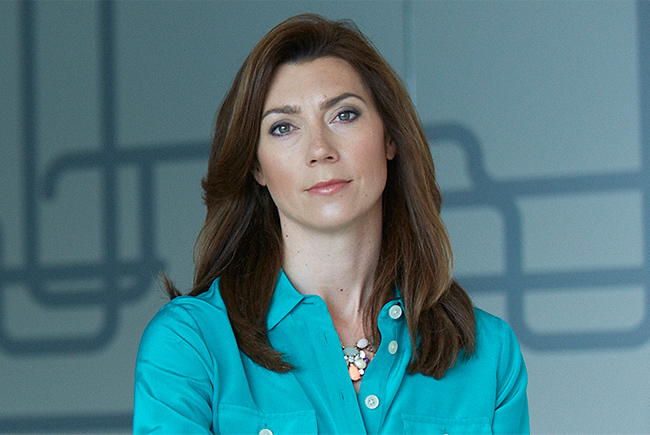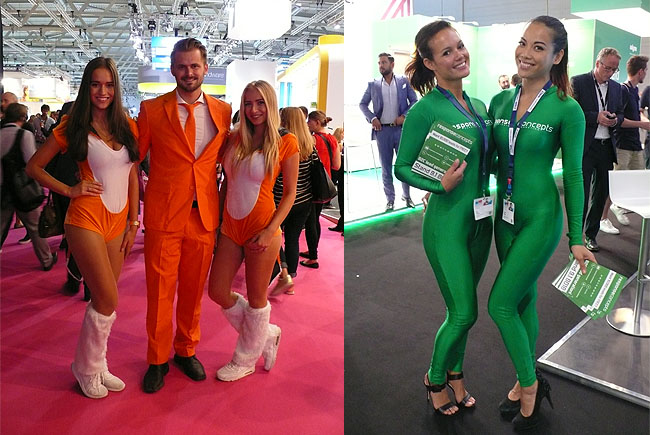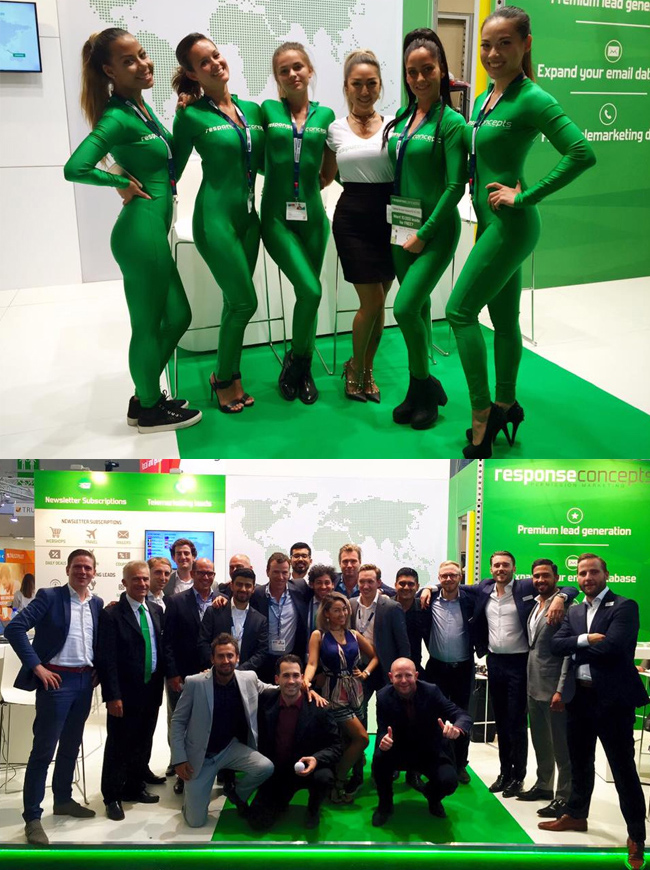Maxus and Thinkbox CEOs call out sexism at Dmexco

Lindsay Pattison, CEO, Maxus Worldwide
As Dmexco starts priming the industry for its 2017 event, two of the most influential women working in advertising, Maxus Worldwide CEO Lindsay Pattison and Thinkbox CEO Lindsey Clay, have criticised the global conference for facilitating discrimination against women.
Between them, WACL members Pattison and Clay described the sexism on display at one of marketing’s biggest annual conferences this year as “disappointing”, “unimpressive” and “an insult to both men’s and women’s intelligence”.
Pattison, who first attended the Cologne-based event in 2014, expressed her frustration at how little progress has been made in regards to Dmexco’s representation of women over the last two years.
“Two years ago at Dmexco my heart sank quite a few times as I saw women in skimpy outfits hired to ‘attract’ the largely male clientele at the trade show,” Pattison told Newsline.
“While a few companies still see this as an appropriate way to drive people to a stand, culture is changing and there is simply no fiscal argument for it. It’s an insult to both men’s and women’s intelligence, reducing women to objects while assuming men can’t resist an attractive woman.”
The comments come after Newsline spent two months repeatedly trying to engage Dmexco’s organisers, sponsors and exhibitors to explain the offence caused to many of the women at this year’s conference.
In September Newsline reported that there had been various displays of sexism at Dmexco 2016 – from the under-representation of females on panels and at stands, to a ‘girls’ only’ lounge and the use of women in skimpy outfits to promote adtech companies.

Dmexco 2016: Crowdfox and ResponseConcepts
Dmexco’s conference guidelines explicitly state that exhibitors must not advertise in any way (including walking acts and promotional teams) outside of their stand areas; and that body painting, entertainers and “scantily clad hostesses” are not permitted.
The guidelines state that exhibitors could be fined up to €5,000 and excluded from subsequent events for being in breach of their contract.
However, when Newsline asked Dmexco if it was aware that exhibitors were employing women dressed in Lycra and hotpants to work at their stands and around the floor, a spokesperson said Dmexco is not responsible for what their 1,000+ exhibitors do.
“The dmexco is a global business and innovation platform that offers its exhibitors floor space and services. The exhibitors are solely responsible for their contents they show at dmexco. We recommend to address your questions to the individual exhibitors.”
Dmexco – which draws in more than 50,000 industry professionals each year – ignored questions asking whether it thinks it has a responsibility to drive change in gender discrimination in advertising and tech, and whether it will take steps to ensure that women are represented in a fairer way in future.
Newsline contacted Crowdfox and ResponseConcepts, two of the exhibitors that were using ‘booth babes’, but received no reply.

The ResponseConcepts promotional women and business team at Dmexco (source: Facebook)
Similarly, the IAB US, the trade association for digital advertising and an international partner of Dmexco 2016, refused to comment.
Thinkbox CEO Lindsey Clay said the lack of response from both organiser and sponsor is disappointing.
“As an active campaigner for better representation of women at industry events, I am particularly disappointed to hear about the apparent lack of interest/engagement from organisers and sponsors in working to change the “blokey” image of this famously male-dominated conference,” she said.
“Not very impressive, I’m afraid.”
Moving forward
The conversation around sexism in the advertising industry has been on the agenda for a long time – especially at boardroom level – but there is little evidence to suggest that it is being treated with the seriousness it deserves.
Saatchi’s ex-executive chairman, Kevin Roberts, most recently kicked the discussion into overdrive when he said the gender debate in adland is “fucking over” – swiftly prompting his resignation.
Roberts’ comments come at a time when the six largest advertising holding companies – Omnicom, Publicis, WPP, Interpublic Group, Havas and Dentsu Aegis – are all headed up by men.
Meanwhile, despite women making up more than half of adland, it is estimated that just 2.9% of adtech CEOs are women – lower than the 4.8% of female CEOs at Fortune 500 companies – while only 11% of creative directors within ad agencies are female.
Additionally, separate research found that 70% of young female creatives are working in a 75% male-dominated department and say they have never worked with a female creative director or executive creative director.
Magda Pniewska, engagement manager at GroupM and Donia Baddou, head of sales at Mobkoi – co-founders of women’s group The Board – said it is imperative that the industry works together to strike a balance going forwards.
“From watching women in Lycra giving out free gadgets at media events, to wide disparities in salaries between us and our male co-workers, each of us – female media professionals and members of The Board – have experienced gender inequality personally,” Pniewska and Baddou told Newsline.
“We attend media events with male-only expert panels and designated pink areas called ‘The Girls’ Lounge’ – and as much as we appreciate and encourage women’s initiatives, we feel that this particular one, at face value, reinforces gender stereotypes and infantilises business-women and in the same token emphasises gender separation.
“It’s not acceptable that in this day and age gender inequality is still so vastly prominent in media. It’s imperative that as an industry, we try a lot harder to strike a balance.”
Similarly, Maxus’ Pattison said it is up to the entire industry – “women, men, event organisers, delegates, clients and agencies…those of us who are offended [by sexism]” to “speak up” to help bring sexism in the advertising industry to an end.




